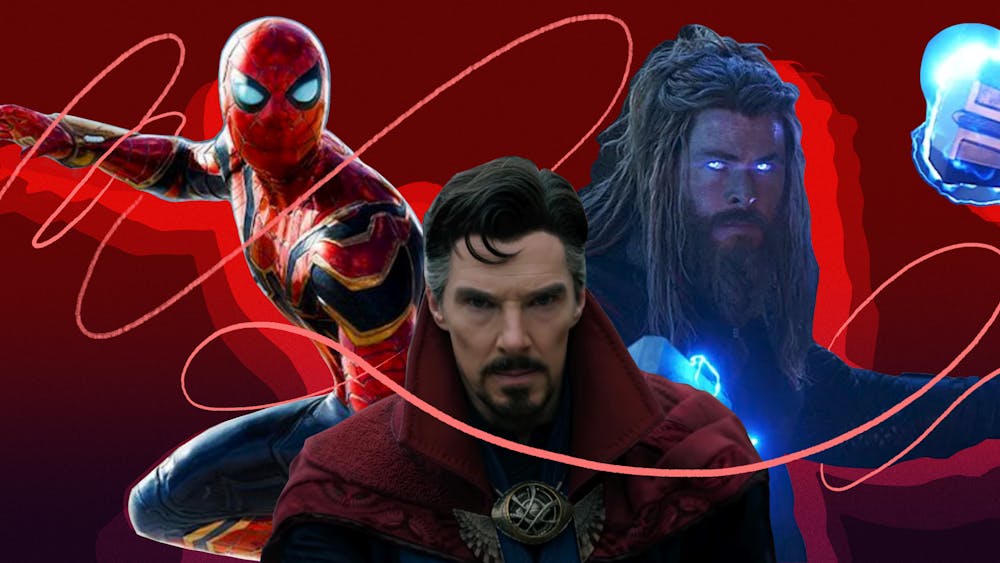Superhero movies have been around for decades, with the first superhero movie arguably being a 1916 French film called Judex. Judex centers on a dark–cloaked vigilante named Jacques de Tremeuse who possesses no powers and relies on high–tech gadgets. Sound familiar? Yes, twenty–three years before writer Bill Finger and artist Bob Kane created Batman in May 1939, a Batman–esque hero had already been introduced to the world.

Now, over a century later, this vigilante archetype is returning with Matt Reeves’ The Batman hitting theaters in March 2022. While this iteration of Batman is promised to be a gritty and dark tale of Bruce Wayne’s early years of fighting crime, one can’t help but make comparisons to Christopher Nolan’s own Batman trilogy, which premiered a mere decade ago. While film tropes underpin some of Hollywood’s greatest movies, like the organized crime trope in The Godfather and Goodfellas, today's overabundance of superheroes has resulted in divided opinions within Marvel’s fanbase.
In 2021 alone, the top domestic earners at the box office were all comic book movies, with Spider–Man: No Way Home leading the charge with over $700 million. It’s no wonder why Hollywood loves superhero movies—they make a ton of money. And when it comes to the MCU, many fans are invested in this connected universe and are willing to watch whatever Marvel Studios creates. But even some Marvel fans are experiencing a loss of enjoyment with these movies. A new 2021 study from Morning Consult showed that 29% of Marvel fans feel worn out from the genre.
Among Marvel fans on Penn’s campus, the sentiment was varied. Eli Katz (E ‘25), who’s been reading comic books for years, shared his opinion on Marvel movies.
“I really think that the worst parts of Marvel are that they kind of don’t know when to play things as a joke and when to play things as serious,” he says. Eli further discusses his thoughts on Spider–Man: No Way Home: “When they reveal Andrew Garfield, like, this is fantastic. This is merging [with] my childhood, and this is everything I ever wanted. And then they turned it into a joke."
Eli was not as fond of Spider–Man: No Way Home as other fans but, nonetheless, he's excited for the future of comic book movies and shows. "I'm a little bit excited because you're starting to see people realize that the superhero medium might be an avenue for more creative methods of filmmaking," he adds.
Aiden Sessa (W ‘23) is a massive Marvel fan who grew up watching the Tobey Maguire Spider–Man trilogy and loved the recent Spider–Man crossover film. Still, Aiden has also found himself experiencing superhero fatigue. According to Aiden, “In the early days, Marvel was very unique. When [the original Avengers] came together, it was like, wow, all of these different things are combining and that’s so great. And then as Marvel went along, they just turned every movie into the same movie."
Comic book movies have always centered on complex characters who grapple with their morals and ethics. But comic book movies in the twenty–first century may have become overly reliant on computer–generated imagery (CGI) and green screens when creating fictional worlds. In many instances, a Marvel/DC movie has become more of an animated film than live–action. “I was really into the stuff Marvel did with [Shang–Chi’s] dad,” Aiden says, while discussing Shang–Chi and the Legend of the Ten Rings, “but then the third act came and a giant dragon appeared, and they completely lost me.”
Many of Hollywood’s greatest directors have also expressed criticisms of the MCU, including Martin Scorsese, who, during his press tour of The Irishman, lamented that MCU films “just aren’t cinema” and are “closer to theme park rides.” Aiden partially agrees with Scorsese’s characterization of Marvel movies, noting that watching Marvel movies is a collective experience akin to going to a theme park. “The biggest difference between the two kinds of films is that comic book films do tend to be more audience–focused rather than story–focused,” Aiden remarks.
It’s silly not to acknowledge a Marvel movie as part of cinema, given that it plays in theaters and is watched by millions of loyal fans. Just as Titanic and Star Wars were landmark films in their respective eras, Marvel movies have captured the zeitgeist of what audiences are interested in today. But only time will tell if they'll be considered classics alongside these other cultural milestones of the silver screen.







